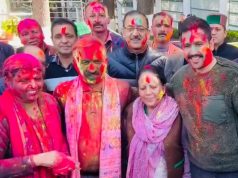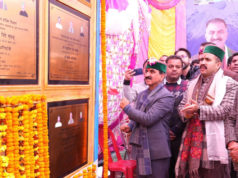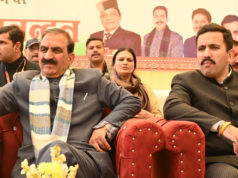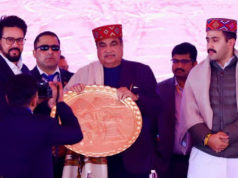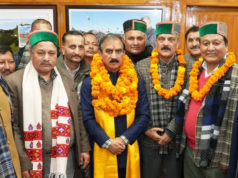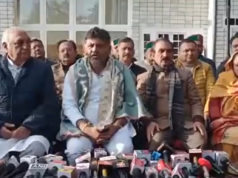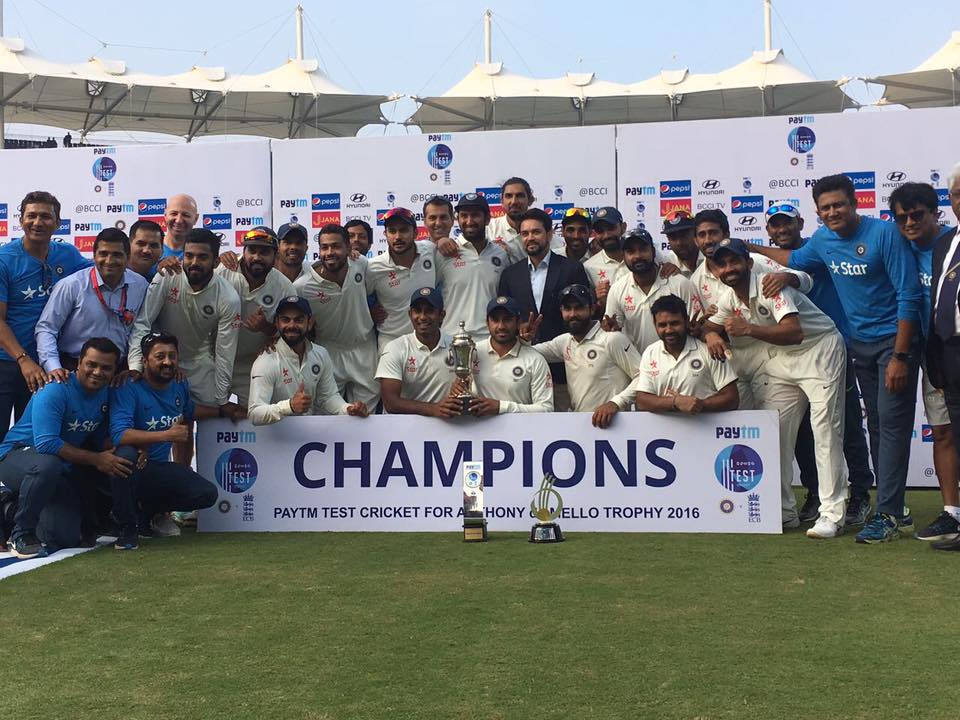In a surprising turn of events, Congress leader and Himachal PWD Minister Vikramaditya Singh has thrown his support behind the implementation of the Uniform Civil Code (UCC), citing its significance in fostering national unity and integrity. However, Singh also expressed caution against the issue being exploited for political gains.
Singh’s endorsement of the UCC, conveyed through a social media post, highlights a rare stance within his party. Alongside his support, he criticized the Bharatiya Janata Party (BJP) for allegedly politicizing the matter. Singh raised concerns about the timing of the UCC discourse, pointing out that the BJP has held a majority government for almost a decade, which raises doubts about their true intentions behind pushing for its implementation. He accused the ruling party of leveraging the UCC as a political strategy to gain an advantage in the upcoming parliamentary elections.
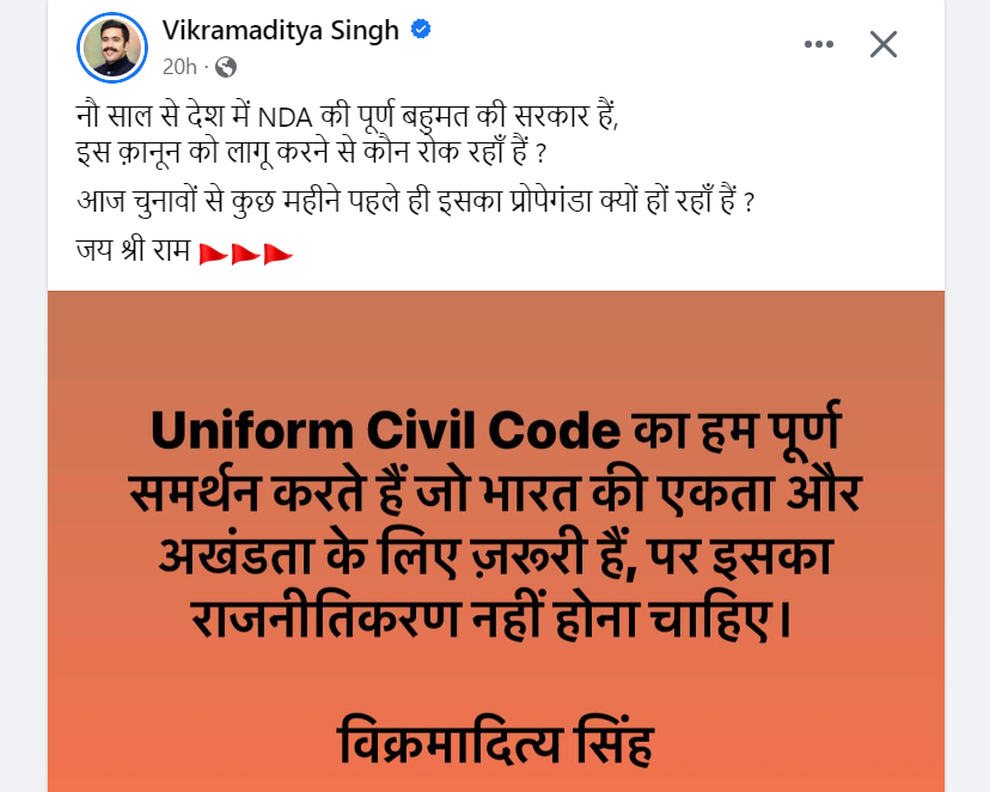
Prime Minister Narendra Modi has also recently joined the UCC debate, advocating for its implementation during a virtual event with BJP’s booth workers. PM Modi emphasized the significance of unity and equal treatment under the law, arguing that a nation cannot function efficiently when governed by multiple sets of laws. He called on the nation to embrace the principles of the UCC, emphasizing that the Constitution guarantees equal rights for all citizens.
Also Read: PM Modi Highlights Need for Uniform Civil Code
The Narendra Modi government is currently considering introducing a bill on the UCC during the upcoming monsoon session of Parliament. According to sources, the bill may be referred to the parliamentary standing committee to gather input from various stakeholders. This move follows a notice issued by the Law Commission of India, seeking the opinions of stakeholders on the UCC. The parliamentary standing committee on personnel, public grievances, law, and justice has scheduled a meeting to discuss the UCC and gather viewpoints from diverse sections of society.
The UCC, a proposed legal framework, aims to replace personal laws based on religious practices and customs with a unified set of laws applicable to all Indian citizens, regardless of their religious affiliations. It seeks to establish uniformity in crucial areas such as marriage, divorce, inheritance, and adoption.
Supporters argue that the UCC promotes equality, social justice, and national integration by ensuring equal rights for all citizens. They believe that a common set of laws will eradicate discrimination, particularly against women, and foster a more inclusive society.
However, the UCC has faced objections from certain sections of the Muslim community in India. Critics argue that it infringes upon their religious freedom and traditions, as personal laws have been an integral part of their cultural and religious practices for centuries. They express concerns about the potential encroachment on their autonomy and the erosion of their distinct religious and cultural identity.
Addressing these objections requires a balanced and inclusive approach to implementing the UCC. It necessitates thoughtful deliberation and extensive dialogue with all stakeholders to achieve a harmonious equilibrium between the principles of equality and religious freedom. Respecting the rights and apprehensions of different communities is crucial to foster a spirit of mutual respect and understanding.
As the UCC debate intensifies, the clash of opinions between political parties, including the Congress and the BJP, has taken center stage. The issue has become highly politicized, with each side attempting to gain an advantage in the upcoming parliamentary elections. The fate of the UCC and its potential implications for national unity and religious freedoms will likely remain at the forefront of public discourse in the coming months. Stakeholders will continue to voice their opinions and engage in critical dialogue to shape the future of India’s legal landscape.




